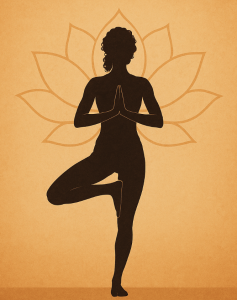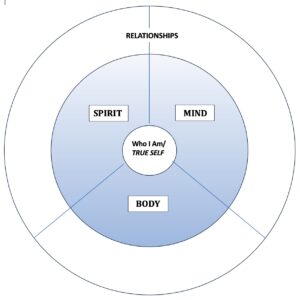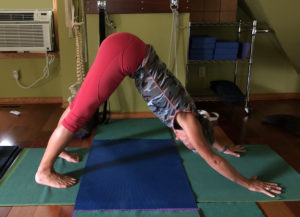As humans, we do not have the capacity to selectively numb out only our dark emotions. When we numb out any emotion, we numb out all emotion. Hence why many people no longer know what brings them joy. In numbing out what doesn’t bring pleasure, happiness, joy, we also repress what does. Our feelings exist for a reason. Emotions are purposeful messengers, but when we do not listen to them, we miss valuable information about who we are and what our purpose and place is in the world.
It is often said that in today’s modern and postmodern world, the forces
of darkness are upon us. But I think not; in the Dark and the Deep there
are truths that can always heal. It is not the forces of darkness but of
shallowness that everywhere threaten the true, and the good, and the
beautiful, and that ironically announce themselves as deep and profound.
It is an exuberant and fearless shallowness that everywhere is the modern
danger, the modern threat, and that everywhere nonetheless calls to
us as saviour. Ken Wilber, Sex, Ecology and Spirituality
The choice is simple but it is not easy — feel and face fear or numb it out! Brene Brown (self-proclaimed vulnerability researcher) believes we numb our darker feelings through busyness, medicating, eating and spending. We enact these non-value adding behaviours in order to protect ourselves from being vulnerable. In Brown’s terms, vulnerability is the “willingness to be your true self, and the courage to share that true self with others.”
When did we learn to cover up who we truly are; our authentic selves? Maybe the better question is why did we choose to hide our true self from both ourselves and the world? Sadly, many of us spend the second half of our lives peeling away the protective habits and layers we use to numb our wounds. To loosen the grip of these old habits and replace them with value-adding responses, I adopted two strategies —
1. Befriend and own my feelings
My darker emotions (fear, anger, boredom, frustration, dissatisfaction, anxiety, insecurity, etc.) are triggered by my reaction to something in my external environment. Herein lies the opportunity for me to ask myself this question — “What am I afraid of?” Emotions are like a lighthouse beacon alerting us to that which we need to pay attention. By focusing our attention on what frightens us, we can uncover whether it is a legitimate fear or just False Evidence Appearing Real. We often discover these old fears no longer make sense in the present, and as Lou Tice of the Pacific Institute states “you don’t have to let your inner feelings be dictated by the external environment”.
When you hit your thumb with a hammer, you know what causes the pain.
Do you know what causes the emotion?
All of us have nervous systems that cause us to feel pain. All of us
have emotions, too. We feel happy, sad, angry, elated, hopeless,
inspired. But where do the emotions come from? What causes them?
When you hit your thumb with a hammer, you feel pain. You may also
feel some anger and maybe even some shame. We can safely say that
the hammer caused the pain. But we can’t say that the hammer caused
the anger or the shame. If that were true, then it wouldn’t matter
what hit them on the thumb, every single person would feel exactly
the same emotions.
So how come you get mad when the same situation doesn’t bother
someone else at all? They laugh it off without a hint of anger. You
see, the truth is that you cause your own emotions, and you do it with
your thoughts. Many centuries ago, Epictetus said, “We are disturbed
not by the things that happen, but by our opinion of the things that
happen.”
Happily, we don’t have to let our inner feelings be dictated by our external environment. We can successfully take control of how we choose to feel. But how do we do this?
2. Be Aware
In his 2012 book, Heart, Smarts, Guts and Luck, Anthony Tjan and his co-authors found that one quality trumps all with regard to entrepreneurial, management and leadership success — self-awareness. In essence, their research maintains the best way for us to improve our effectiveness is to know what motivates our decisions. When we understand our desires, strengths and vulnerabilities, we are capable of conscious rather than unconscious choice. With considered thoughtfulness, rather than impulsive fear-based behaviour, we can shift our decisions and actions to reflect what we truly want and who we truly are.
This is the trinity of self-awareness: know thyself, improve thyself,
and complement thyself. […]Intellectual honesty, rigorous commitment,
and active truth-seeking are sine qua non to any self-awareness process.
Ask yourself, “With what feelings am I most uncomfortable? What behaviours do I use to numb these feelings?
As these feelings arise within you, let yourself become fully aware of them. Settle your attention and awareness on them. Stay with the feelings until you sense a visceral shift in your body. By doing so, you are expressing rather than repressing your emotion. Your body will tell you when your expression is complete. Before you move on to something else, ask yourself, “What is it about this external circumstance and these feelings that I fear?” Once you identify the source of your fear, it becomes simple and easy to identify the solution.





